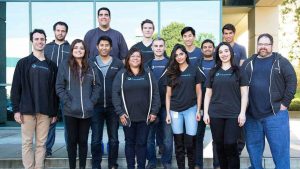San Francisco-based early cancer detection company Freenome hopes to make colorectal cancer screening a part of all annual health care routines. To help facilitate this for patients, they have taken the colonoscopy out of the equation, replacing it with a simple blood draw. Not only are their methods far less invasive than traditional colonoscopies, which also require uncomfortable preparation before patients even enter the clinic, but Freenome’s blood test costs hundreds of dollars compared to a colonoscopy’s thousands.
"Effective cancer screening remains one of the most important clinical problems to solve," said Freenome CEO Gave Otte. "True early detection will save many lives."
RNA and certain proteins in the blood can be indicators of potential health issues and their identification can lead to the early detection of cancer and other conditions. In many cases, especially with colorectal cancers, patients don’t complete a cancer screening until they already experienced symptoms, by which time the disease may have progressed to an advanced and untreatable stage. Otte hopes the front-end simplicity of Freenome’s screening inspires patients and providers to push for yearly testing.
Freenome has recently received strong support from its backers in a new Series C round of funding led by Bain Capital Life Sciences and Perceptive Advisors. The $270 million round also drew support from Fidelity Management & Research, Cormorant Asset Management, Janus Henderson Investors, Rock Springs Capital, Farallon Capital Management, EcoR1 Capital, Catalio Capital Management and the Colorectal Cancer Alliance. Since its founding in 2014, Freenome has raised a total of $500 million.
The company plans to use the funding to further develop its FDA-approved PREEMPT CRC trial. The ongoing clinical trial that aims to enroll 14,000 individuals will also include asymptomatic and low-risk patients, with the hope that early detection can help doctors develop treatment plans that stop cancer before it spreads. Normally, the U.S. sees 800,000 to 1,000,000 colonoscopies per month. COVID-19 has drastically reduced these numbers. By offering his trial to local clinics nationwide and not exclusively large, centralized hospitals, Otte plans to make the trial available to millions of people across the U.S. to encourage people to continue their normal screening routines despite the onset of a global pandemic.























